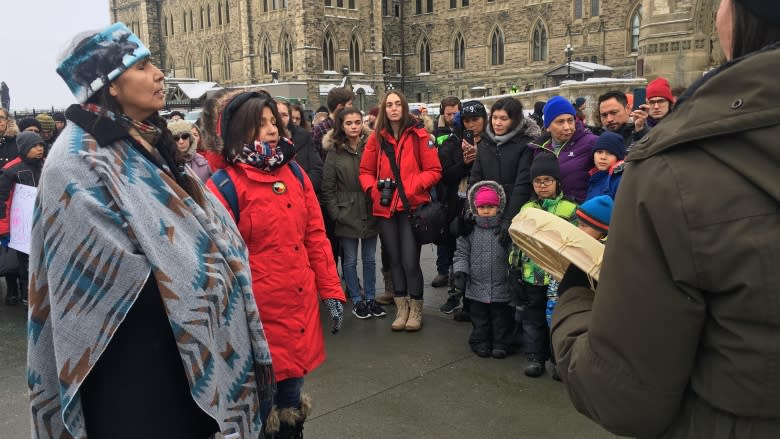5 years on, Ontario's plan to get more Indigenous people on juries a work in progress
Five years after a former Supreme Court of Canada justice recommended sweeping changes to improve Indigenous representation on Ontario's juries, his ideas are still being studied.
The Ontario government commissioned former justice Frank Iacobucci in 2011 to look into why Indigenous people aren't properly represented on juries in the province.
The issue resurfaced recently following the acquittal of Saskatchewan farmer Gerald Stanley in the shooting death of Colten Boushie, a young Indigenous man from a nearby reserve. The jury in the case had no Indigenous members.
In his report delivered in 2013, Iacobucci found the problem of Indigenous underrepresentation was particularly acute in northern Ontario, where Indigenous people account for up to 36 per cent of the population in some areas, but less than 10 per cent of jury membership.
'Time for talk is over'
At the time, Iacobucci called for quick changes to the justice system.
"If we continue the status quo we will aggravate what is already a serious situation, and any hope of true reconciliation between First Nations and Ontarians generally will vanish. Put more directly, the time for talk is over, what is desperately needed is action," he wrote.
"If this report and its recommendations together with their implementation are put on the shelf, we as a society will all be the worse off and the momentum for progress will likely come to a halt. The consequences of this will be very serious."
Reached this week, Iacobucci said he knew change would not come overnight, because making real change is difficult.
"There are a lot of things in the report that need to be looked at, that need to be studied, to be discussed, so I am not surprised by that at all," he said. "Some of these things are very challenging issues."
Iacobucci made 17 recommendations aimed at improving the system, including changes to how potential jurors are contacted, changes to the questionnaire they receive, and changes to compensation provisions that Iacobucci said would allow broader participation.
Implementation committee
He also recommended the government set up a committee to implement his ideas, which has happened.
"In keeping with Justice Iacobucci's recommendation and to ensure the voices of Ontario's Indigenous people were front and centre in this process, the government created the Jury Review Implementation committee, named Debwewin," Andrew Rudyk, press secretary to Attorney General Yasir Naqvi, told CBC in an email.
"To combat this [underrepresentation], Ontario has done targeted promotion of the jury questionnaire for the last two years in Indigenous communities to encourage engagement in the jury process," Rudyk wrote.
He also pointed to a pilot project with the Nishnawbe Aski Nation that encouraged Indigenous people to come forward and volunteer to be on a jury roll for coroners' inquests, which has seen some success.
"The volunteer list has been used in at least seven inquests to date, including the First Nations youth inquest into the deaths of seven Indigenous youth in Thunder Bay," Rudyk said.
The implementation committee is now preparing its final report for the deputy attorney general, according to Rudyk.
"Debwewin's efforts are commendable. It is necessary we get it right."
Much more to do
Jonathan Rudin, program director of Aboriginal Legal Services in Toronto, said the government has made some progress, including appointing a deputy attorney general specifically for Indigenous issues.
"All provinces could and should do that, and that's a real testament ... to their commitment to change."
However, Rudin said there are other steps the government could have taken by now, including expanding how the database used to contact potential jurors is compiled.
"I do not understand what appears to be the reluctance of the ministry to look at other ways of obtaining the data," he said. "[Indigenous people] should be just as entitled as anyone else to be considered for jury duty."
Iacobucci also encouraged the provincial government to lobby the federal government to ban peremptory challenges of potential jurors.
The challenges allow defence lawyers to remove potential jurors without offering a reason, and were used to remove people who appeared to be Indigenous from Stanley's jury.
Rudin said the practice makes Indigenous people feel left out of the justice system.
"It has a long-term corrosive effect that goes well beyond that particular trial," he said.



